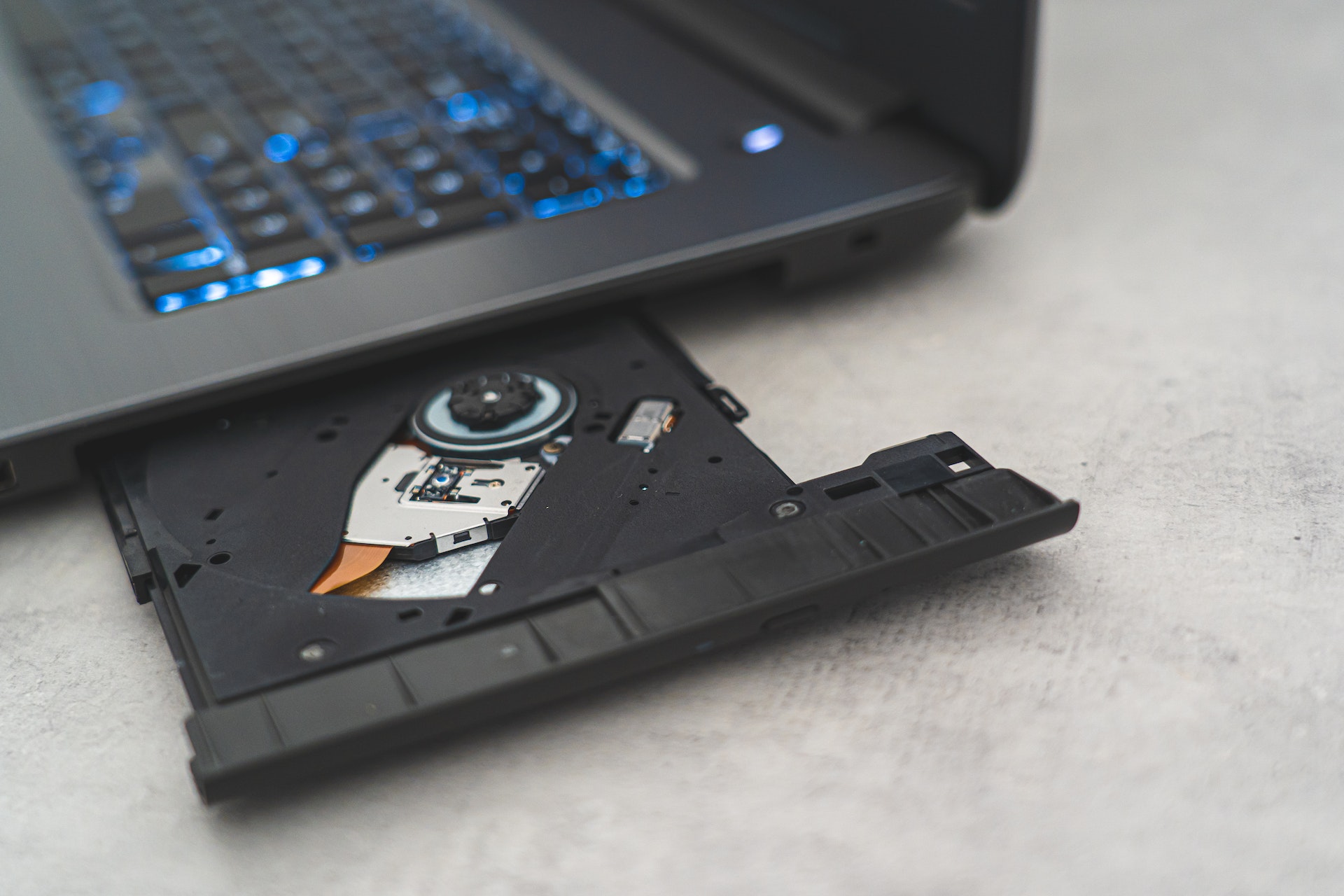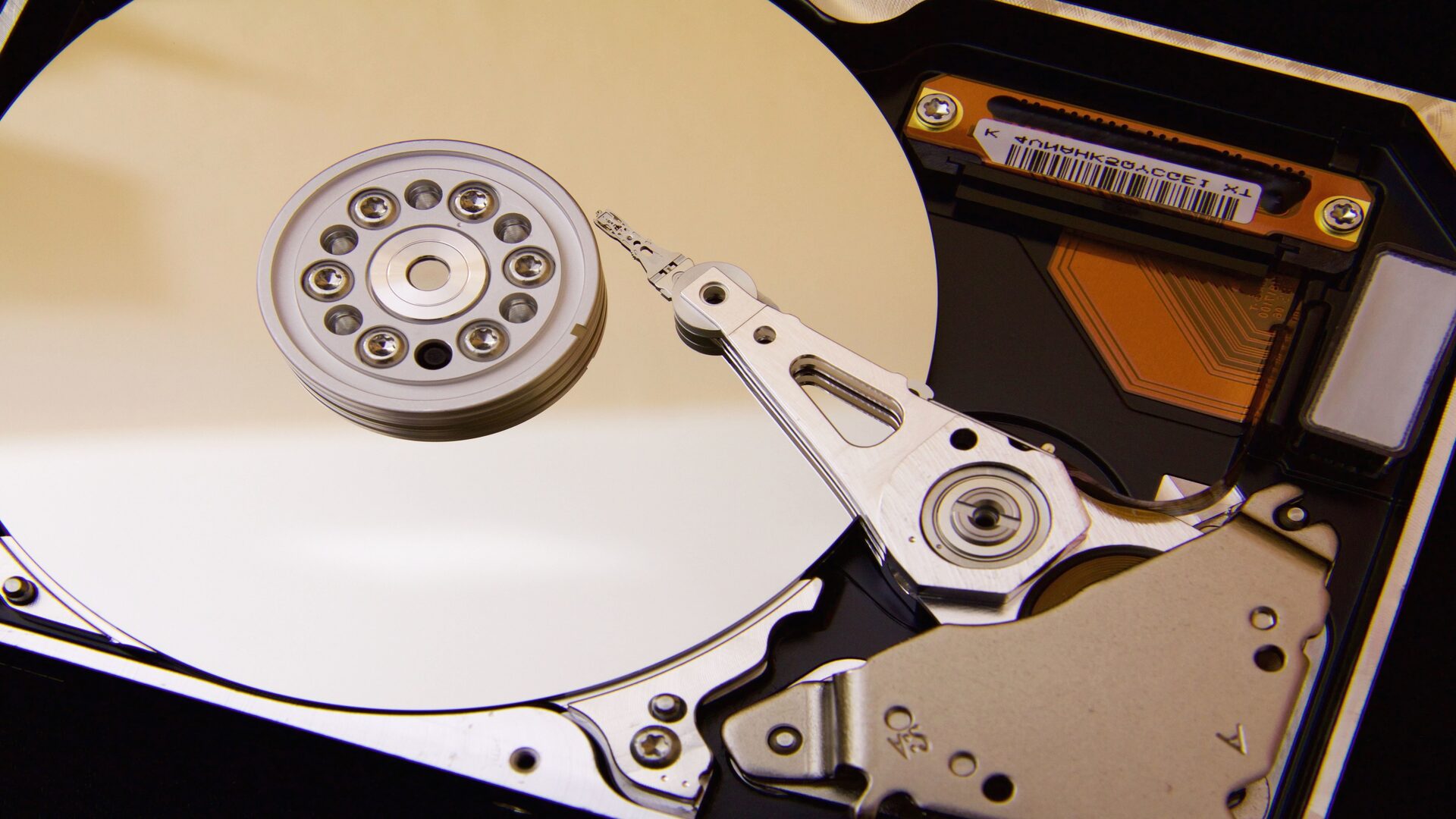Laptop manufacturers killed the internal disk drive, and it was a big mistake
We could have had a bright future filled with internal optical drives

Hard disk drives have been around since the 1950s and were first created after IBM discovered the applications of the ‘Random Access File.’ From there, we saw each generation of hard disk drives become smaller and less cumbersome, eventually fitting into offices and homes with ease. This coincided with the decrease in size of disk media, which was originally 24 inches but has been reduced to the standard size of 3.5 inches and 2.5 inches.
The 1990s saw the first DVD-ROM compatible computers, a year after the DVD format was invented. And in 2003, Toshiba released the first laptop with a built-in slim DVD-ROM, called the Toshiba Portege M100. Funny enough, you can still find that model available for purchase on Ebay, albeit used and most likely in not particularly good condition.
Naturally, other laptop manufacturers followed suit. This included Dell’s own suit of laptop models including the Dell Inspiron 1525, which was my mid-range machine of choice when I attended college in the mid-2000s. And for years, this was the norm for laptops, something left unquestioned. If you had a laptop, there was an optical drive in it.
Of course, nothing goes on forever. The internal drive was eventually phased out of laptops completely — to the detriment of the entire industry.

The golden age of disk drives and laptops
During the early and mid-2000s, a laptop having an internal disk drive was a standard feature, something not to be questioned. My own Dell Inspiron 1525, which was a clunky and thick sonnabitch of a laptop, had its own disk drive. This gave meaning to its weight and size because I was carrying around essentially a DVD player.
Not only could I watch movies and TV shows, or listen to music whenever I wanted, but I could also buy, indefinitely keep, or even share computer programs with other people. That's not to mention being able to burn CDs on the fly, though that was an admittedly fading practice with the advent of simply saving MP3s into flash drives or MP3 players being far more reliable methods.
But having a built-in disk drive offered tons of options alongside using purely digital means, and it was an option plenty of laptop owners appreciated.

Why laptop manufacturers stopped including disk drives
There are plenty of reasons that we could come up with as to why laptops with internal disk drives went from standard feature to rare unicorn. Hard drives generally saw a decline starting around 2009 after major manufacturer Fujitsu exited the market, and in 2011 when a series of floods in Thailand impacted many hard drive factories, with predictions of a shortage causing prices to double.
The biggest one is the advent of cheap, reliable, fast, and high-capacity USB drives, cloud storage, and video streaming options that took over for hard drives. On paper that makes sense, since DVDs and CDs weren’t the most reliable of hard media and could easily scratch which affected playback.
There’s also a commonly spewed fact that not including hard disk drives has made the best laptops and the best gaming laptops cheaper to make and purchase, allowed for circuit boards in laptops to be larger and less dense, required fewer layers, and reduced weight and thickness.
There is some truth to the cheaper aspect, as a lawsuit settlement back in 2017 accused optical drive manufacturers of “colluding to inflate the prices of optical drives sold to big computer companies and retailers.” And over time laptops have gotten generally thinner and lighter too.

The real reasons why internal disk drives were phased out
However, the biggest reason why companies jumped at the chance to remove optical and hard disk drives from laptops is simple: it allows for more control.
Back when computer programs and media were exclusively on physical media, once you made that purchase, you had complete control over how you used it. Corny PSAs like “Don’t Copy That Floppy” and such tried to scare kids into not copying or sharing such media, which had absolutely no effect.
But look at what happened once digital media became the norm: the tech industry quickly pounced and replaced actual physical programs that you could own, copy, and pass on with subscriptions that remove ownership from the user and forces us to constantly pay companies the right to rent programs like Microsoft Office and Adobe suite. This coincided with the phasing out of optical/hard disk drives not only for laptops but even some PCs now. If you have no way to use physical methods, then you’re forced to use digital ones.
And while disk drives can increase the size of laptops in general, which would be a killer for some of the super light models, it doesn’t hold water when looking at some of these desktop replacement laptops that weigh just as much or more than my old Dell Inspiron 1525. Honestly, if a selling point of a desktop replacement was that it included an internal hard disk drive, I would instantly buy it and happily lug it around.
The pricing argument doesn’t carry weight either. While technological advancements over the years have increased significantly, the cost of developing and distributing PCs has not skyrocketed thanks to Moore’s Law. After COVID increased the demand for laptops due to remote work being far more commonplace, we actually saw those prices inflate for the same tech.

Final thoughts
I am in no way advocating for the PC market to go back to having every single laptop be outfitted with an internal hard disk drive, whether DVD, CD, or even Blu-ray. But the way manufacturers were able to phase such an important out completely while steadying increasing PC prices is unacceptable.
There should be multiple options for the average buyer. For instance, I do believe it’s important to have the best thin and light laptops available for those who cannot carry around a substantial amount of weight on their back or shoulder. However, there should be options for bulkier laptops to have an internal drive built-in them.
And that’s really what I’m advocating for, to have these options given back to the buyer. Not only for the convenience of having a DVD, CD, or BR player inside a machine that you interact with for many hours a day, but because we’ve already seen what happens when corporations are able to have full control over your media instead of you. And it’s full of exploitation, plain and simple.
Get daily insight, inspiration and deals in your inbox
Sign up for breaking news, reviews, opinion, top tech deals, and more.

Named by the CTA as a CES 2023 Media Trailblazer, Allisa is a Computing Staff Writer who covers breaking news and rumors in the computing industry, as well as reviews, hands-on previews, featured articles, and the latest deals and trends. In her spare time you can find her chatting it up on her two podcasts, Megaten Marathon and Combo Chain, as well as playing any JRPGs she can get her hands on.